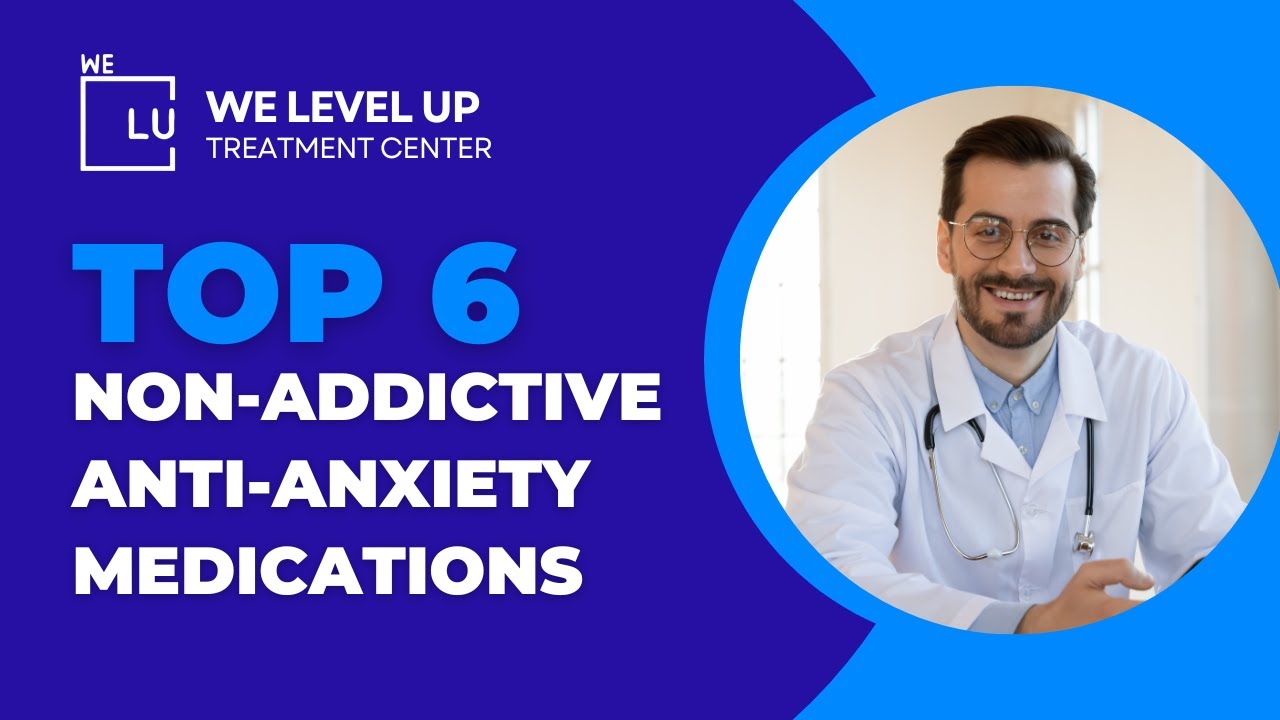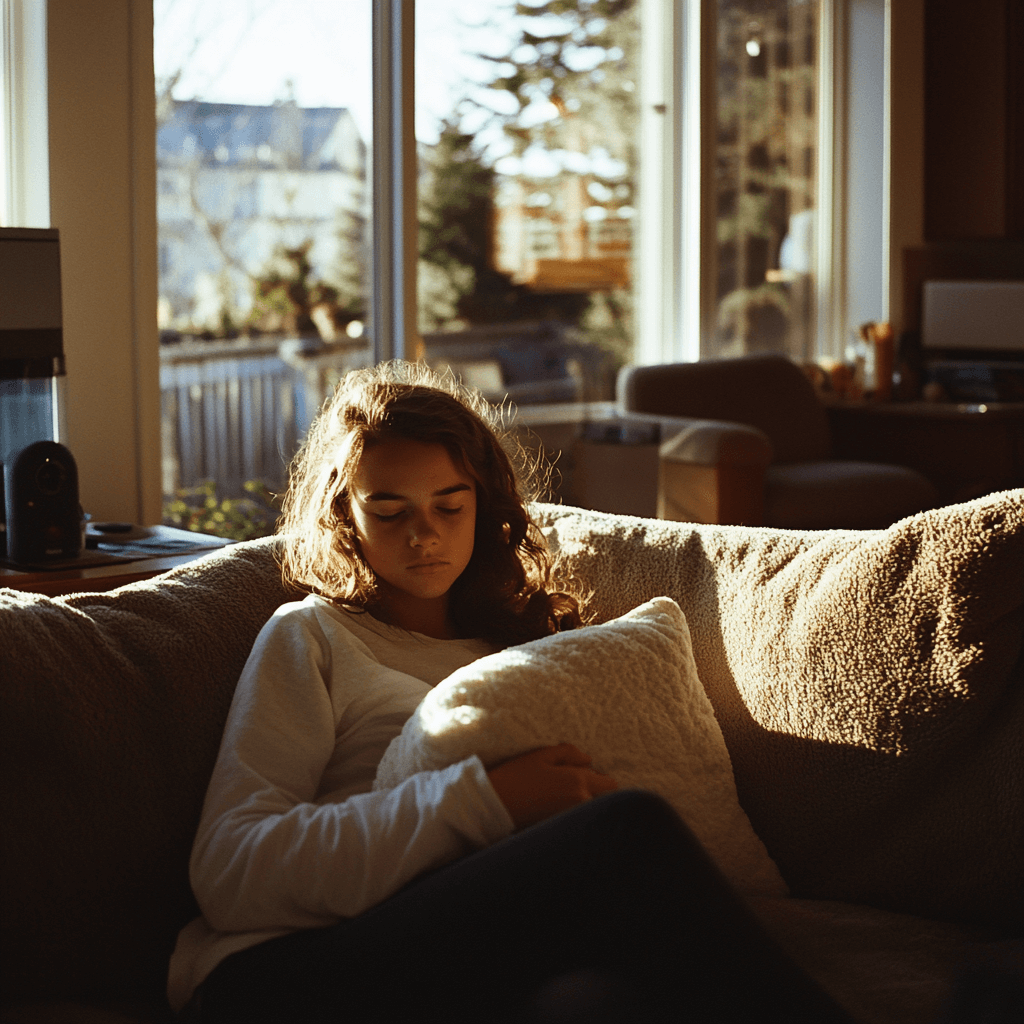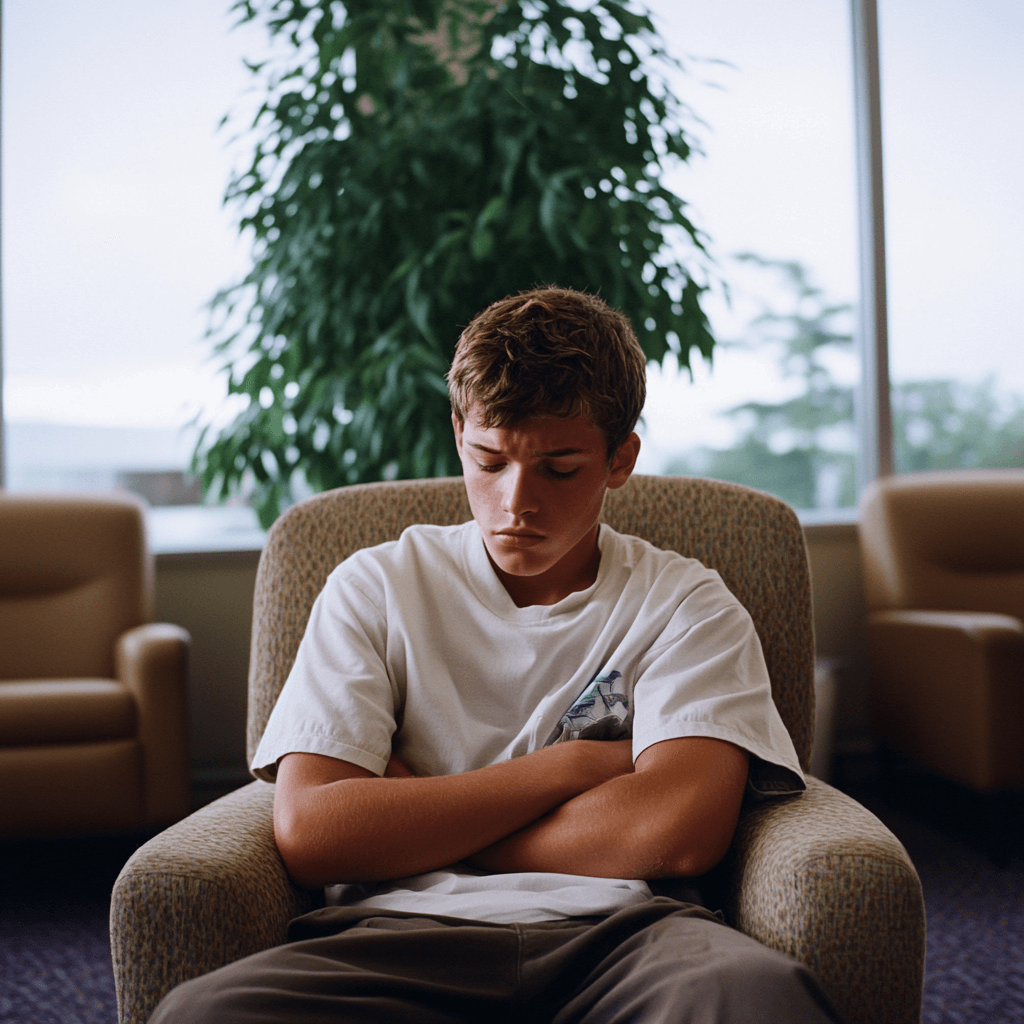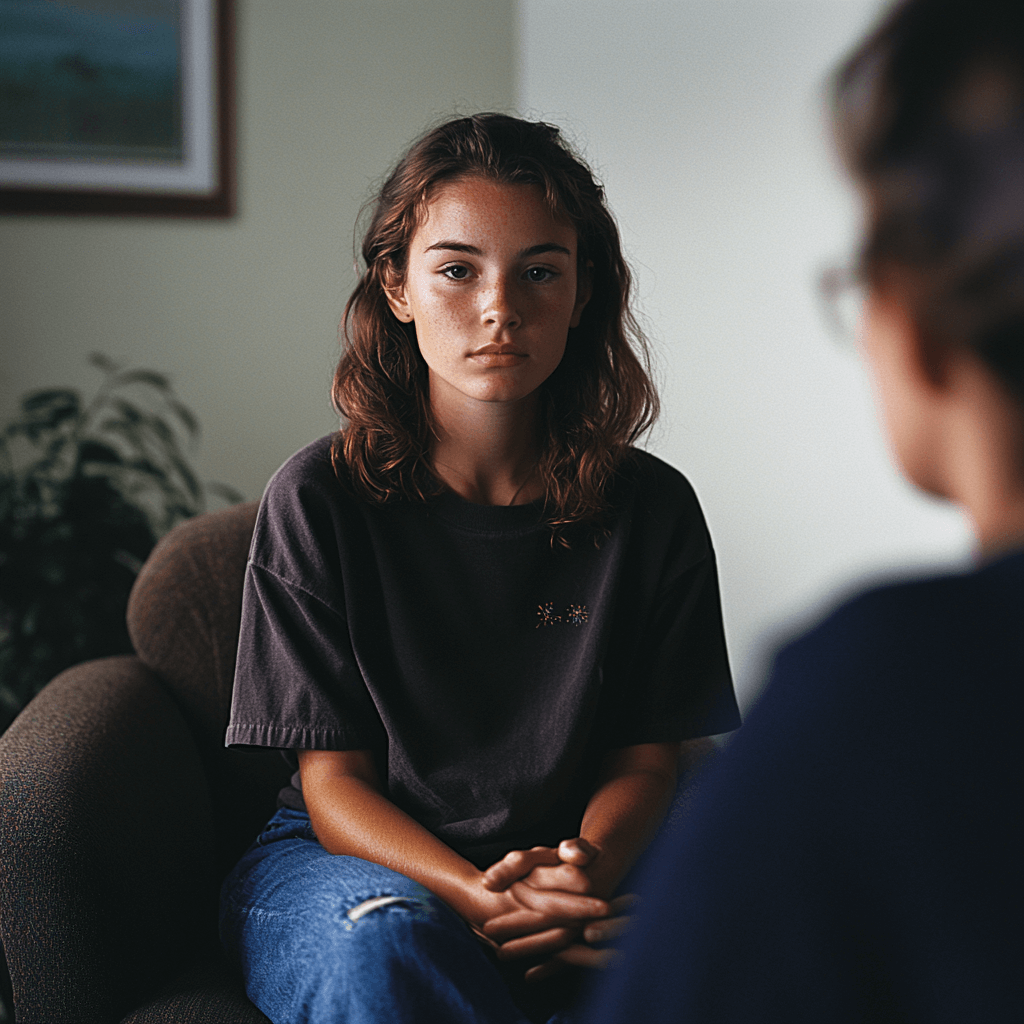What Does Anxiety Feel Like?
While occasional anxiety is natural, some individuals with anxiety disorders experience stress and excessive worry on an extremely high level. They worry a great deal about ordinary things and may even experience panic attacks, which are abrupt, acute episodes of fear.
This anxiety messes with their daily life, making it hard to do regular activities. It’s tough to control and sticks around longer than it should. They might even avoid certain places or situations to dodge these feelings. This can start in childhood or teens and last into adulthood.
But the good news is, no matter what kind of anxiety someone has, there’s help out there. Treatment can make a real difference.
Anxiety symptoms are strongly linked with instances of alcohol and substance abuse. Get help for addiction and anxiety at We Level Up Texas dual diagnosis treatment center. Call us anytime for a free consultation.
What are the Symptoms of Anxiety?
Anxiety can show up in various ways, both in your mind and body. Let’s get a quick overview of what symptoms you might experience in your brain and body.
How Does Anxiety Affect the Body?
The most common physical symptoms of anxiety are:
- Rapid heartbeat.
- Shortness of breath.
- Muscle tension.
- Upset stomach.
- Sweating.
- Trembling or shaking.
- Fatigue.
- Dizziness or lightheadedness.
- Headaches.
- Rash.
- Trouble sleeping.
When you’re anxious, your body goes into a “fight or flight” mode, releasing stress hormones. If this happens too much or in non-scary situations, it can cause physical symptoms and health problems over time.
Effects of Anxiety on Your Mind
Anxiety can make you constantly dwell on bad experiences, feel disconnected from yourself like you’re watching a movie, and even cause the world around you to seem unreal. It also leads to excessive worrying about future events.
The most common effects of anxiety on your mind:
- Excessive worry.
- Racing thoughts.
- Difficulty concentrating.
- Irritability.
- Restlessness.
- Fear or dread.
- Feeling on edge.
- Trouble sleeping.
- Intrusive thoughts.
- Memory issues.
Types of Anxiety Disorders
Anxiety disorders are a group of related conditions, each having unique symptoms. However, all anxiety disorders have one thing in common: persistent, excessive fear or worry in circumstances that are not threatening.
Several forms of anxiety disorders exist, including the following:
- Generalized Anxiety Disorder (GAD): Excessive worry about everyday situations.
- Social Anxiety Disorder (Social Phobia): Fear of social situations and being judged.
- Specific Phobias: Intense fear of particular objects or situations.
- Separation Anxiety Disorder: Extreme fear of being separated from loved ones.
- Panic Disorder: Sudden, intense episodes of fear (panic attacks).
- Agoraphobia: Fear of places or situations that might cause panic.
- Obsessive-Compulsive Disorder (OCD): Intrusive thoughts leading to repetitive behaviors.
- Post-Traumatic Stress Disorder (PTSD): Result of a traumatic event, with flashbacks and anxiety.
- Hoarding Disorder: Difficulty discarding possessions, leading to clutter.
- Body Dysmorphic Disorder (BDD): Obsession with perceived flaws in physical appearance.
Where Does Anxiety Come From?
Anxiety can arise due to health issues, medication side effects, challenging life situations, or a mix of these. When you see a doctor, they’ll check if your anxiety might be a clue to another health problem.
What Causes Anxiety?
The most common risk factors and causes of anxiety are:
- Medical or mental illness.
- Medication side effects.
- Stressful life events.
- Genetic factors.
- Brain chemistry.
- Personality traits.
- Substance abuse.
- Traumatic experiences.
- Environmental factors.
- Hormonal changes.
What Does Anxiety Rash Look Like?
If you experience too much stress for too long, the stress hormone cortisol increases, making the immune system more reactive and your skin more sensitive. An anxiety rash might appear as red, itchy spots on your skin. The rash can vary in size and shape, and it often occurs when anxiety levels are high.

Skip To:
Learn More:
- How to Calm Anxiety Attacks? Symptoms, Causes, and Treatment
- Top 10 Tips on How to Reduce Anxiety Immediately
- Beta Blockers for Anxiety Benefits, Dangers, and Side Effects
- Separation Anxiety in Adults, Causes, Symptoms, and Treatment
- Does Alcohol Help Anxiety?
- Dangers of Mixing Anxiety Medication and Alcohol
- What is Sleep Anxiety?
- What to Know About Valium for Anxiety
- Alcohol and Anxiety Co-Occurring Disorders
- Mental Health Assessment for Mental Illness Treatment
A recent review published by the National Center for Biotechnology Information (NCBI) showed that anxiety disorders predate substance use disorders in at least 75% of cases, further supporting the increased prevalence of the self-medication pathway compared to alternative anxiety treatments and therapies. [1]
If you’re struggling with anxiety attacks and substance abuse, get resources for treatment counseling that works. Start getting support with a free call to our mental health and addiction hotline.
Get Help. Get Better. Get Your Life Back.
Searching for Accredited Drug and Alcohol Rehab Centers Near You? We Level Up Texas Is Opening Soon!
Even if you have failed previously and relapsed, or are in the middle of a difficult crisis, we stand ready to support you. Our trusted behavioral health specialists will not give up on you. When you feel ready or just want someone to speak to about therapy alternatives to change your life call us. Even if we cannot assist you, we will lead you to wherever you can get support. There is no obligation. Call our network hotline today.
FREE Addiction Hotline – Call 24/7Can Anxiety Make You Feel Sick?
Your brain and digestive system are bonded, and when your body goes into an anxious state (also called your fight-or-flight response), it triggers some changes, including your digestive system. This can often result in an upset stomach or feeling nauseous.
Other symptoms may include:
- Rapid heartbeat.
- Shortness of breath.
- Sweating.
- Trembling or shaking.
- Upset stomach.
- Dizziness or lightheadedness.
- Muscle tension.
- Fatigue.
- Headaches.
- Trouble sleeping.
How to Stop Feeling Sick From Anxiety?
To beat anxiety, you’ve got to tackle what’s causing it. Many people can take charge of resolving what’s causing their worries and fears. However, talking to your doctor can make a difference if you struggle to face them.
Doctors have various ways to help with anxiety. They might connect you with a therapist or administer medications to ease it. Both therapy and meds work well, and combining them is even more effective. Plus, you usually won’t need them forever—during tough times.
Top 5 What Does Anxiety Feel Like Physically? FAQs
-
What does anxiety stomach pain feel like?
Stress and anxiety can make you feel like you have knots in your belly. Some people feel nauseated and even vomit.
-
What does anxiety chest pain feel like?
Chest pain due to anxiety or panic attacks can usually feel like a sharp, stabbing feeling that starts suddenly, even if an individual is inactive. However, they may be feeling stressed or anxious already before the chest pain begins.
-
How to stop skin crawling feeling anxiety?
Experiencing formication, the sensation of skin crawling, may manifest as a symptom of anxiety or as a side effect of medications prescribed for anxiety. Considering an antihistamine as a potential alleviating measure is advisable when the sensation becomes disruptive. However, should the symptom persist, seeking professional guidance from a healthcare provider is recommended for a comprehensive evaluation and appropriate management.
-
What does anxiety back pain feel like?
Stress-induced back pain varies from person to person and may appear differently depending on its site. Lower back pain is often described by a dull or sharp ache, stiffness, or muscle spasms, and it may also branch to the legs or buttocks.
-
What does shortness of breath from anxiety feel like?
Your body responds physically and mentally to prepare you to fight or run from threatening circumstances. Shortness of breath is one of those reactions.
If you’re seeking assistance with your rehab journey, reach out to a We Level Up Texas treatment professional today—your call is free and confidential.

Get Your Life Back
Find Hope & Recovery. Get Safe Comfortable Detox, Addiction Rehab & Dual Diagnosis High-Quality Care.
FREE Addiction Hotline – Call 24/7How to Prevent Anxiety Attacks?
There’s no way to foresee what will cause somebody to develop an anxiety disorder, but you can take steps to reduce the impact of symptoms if you’re anxious:
- Recognize signs of anxiety.
- Practice deep breathing exercises.
- Maintain a regular sleep schedule.
- Engage in regular physical activity.
- Limit caffeine intake.
- Practice mindfulness or meditation.
- Establish a support system.
- Set realistic goals and priorities.
- Avoid excessive alcohol or drug use.
- Seek professional help when needed.
Consultation for Anxiety Attacks
If anxiety is disrupting your daily life functioning or if someone experiences symptoms of anxiety disorder, you can consult a healthcare professional to explore coping methods and treatment options.
Relieving anxiety can be achieved through self-help, but when needed, psychotherapy and medication are the primary treatments for anxiety disorders. It’s time to consult a mental health professional if anxiety is constant, hinders daily activities, involves threatening concerns, or includes panic attacks.
Check your insurance coverage for mental health services, seek recommendations from your primary care doctor, or consult with We Level Up Texas rehab healthcare professionals. A thorough mental health examination determines opportunities for treatment. Meeting with mental health counselors and medical care providers means admission to behavioral therapy and medication treatment. Suitable treatment leads to change for better, more restorative living. This is all possible at our dual diagnosis rehab center in Texas.
Opening Soon! First-Class Facilities & Amenities
World-Class High-Quality Addiction & Mental Health Rehabilitation Treatment
Coming Soon! Rehab Centers TourRenowned Addiction Centers. Serene Private Facilities. Inpatient Rehab Programs Vary.
FREE Addiction Hotline – Call 24/7Proven recovery success experience, backed by a Team with History of:
15+
Years of Unified Experience
100s
5-Star Reviews Across Our Centers
10K
Recovery Success Stories Across Our Network
- Low Patient to Therapist Ratio
- Onsite Medical Detox Center
- Comprehensive Dual-Diagnosis Treatment
- Complimentary Family & Alumni Programs
- Coaching, Recovery & Personal Development Events
We Level Up Texas Dual Diagnosis Rehab Center for Anxiety and Addiction
Recognizing addiction as a mental disorder has made the connection between substance abuse and anxiety-related issues more complex. Many rehab centers lack awareness of dual-diagnosed conditions, often treating them separately or neglecting diagnosis altogether. Our Texas dual diagnosis center, staffed with trained professionals, offers tandem treatment for higher success rates.
Substance abuse may stem from underlying mental health problems, like anxiety, leading individuals to self-medicate. This self-medication can escalate into dependency and addiction, especially when psychiatric issues are untreated. Even those initially free from psychiatric conditions experimenting with drugs can develop dependencies, and secondary disorders like anxiety may surface.
Untreated dual diagnoses can exacerbate substance abuse, with certain substances triggering recurring psychotic attacks, potentially worsened by stress. Addressing anxiety attacks is crucial not only to uncover the roots of substance abuse but also to the biochemical imbalances associated with physical dependence. Some people may be predisposed to addiction due to specific brain chemical imbalances, making a holistic approach necessary for effective treatment.

Get a free rehab insurance check without any obligation. The result can help you explore several treatment options.
Top 6 Non-Addictive Anti-Anxiety Medications, Side Effects, and Things You Should Know | Informative Video
Start a New Life
Begin with a free call to an addiction & behavioral health treatment advisor. Learn more about our dual-diagnosis programs. The We Level Up treatment center network delivers recovery programs that vary by each treatment facility. Call to learn more.
- Personalized Care
- Caring Accountable Staff
- World-class Amenities
- Licensed & Accredited
- Renowned w/ 100s 5-Star Reviews
We’ll Call You
Search We Level Up Texas What Does Anxiety Feel Like? Detox Topics and Resources
Sources
- The Key Substance Use and Mental Health Indicators in the United States: Results from the 2021 National Survey on Drug Use and Health – Substance Abuse and Mental Health Services Administration (SAMHSA)
- Smith JP, Book SW. Anxiety and Substance Use Disorders: A Review. Psychiatr Times. 2008 Oct;25(10):19-23. PMID: 20640182; PMCID: PMC2904966. https://www.ncbi.nlm.nih.gov/pmc/articles/PMC2904966/
- Munir S, Takov V. Generalized Anxiety Disorder. [Updated 2022 Oct 17]. In: StatPearls [Internet]. Treasure Island (FL): StatPearls Publishing; 2023 Jan-. Available from: https://www.ncbi.nlm.nih.gov/books/NBK441870/ Research related to: What does an anxiety attack feel like? What does anxiety attack feel like? How does anxiety feel? “I can breathe but I feel like I can’t anxiety.” Feeling of anxiety; feel the anxiety; relationship anxiety or gut feeling; warm feeling in chest anxiety; anxiety feeling in chest ; anxiety feelings; feelings of anxiety.
- Substance Use and Co-Occurring Mental Disorders – National Institute of Mental Health (NIMH)
- Chand SP, Marwaha R. Anxiety. [Updated 2023 Apr 24]. In: StatPearls [Internet]. Treasure Island (FL): StatPearls Publishing; 2023 Jan-. Available from: https://www.ncbi.nlm.nih.gov/books/NBK470361/
- Brady KT, Haynes LF, Hartwell KJ, Killeen TK. Substance use disorders and anxiety: a treatment challenge for social workers. Soc Work Public Health. 2013;28(3-4):407-23. Doi: 10.1080/19371918.2013.774675. PMID: 23731428; PMCID: PMC3775646. https://www.ncbi.nlm.nih.gov/pmc/articles/PMC3775646/
- Mental Health Conditions: Depression and Anxiety – Centers for Disease Control and Prevention (CDC) https://www.cdc.gov/tobacco/campaign/tips/diseases/depression-anxiety.html Related study to: What does chest pain from anxiety feel like? How to stop feeling light headed anxiety? My head feels heavy and pressure anxiety. What anxiety feels like? What do anxiety attacks feel like? How does an anxiety attack feel?
- Can Using Drugs Help Me Deal With Anxiety and Depression? – National Institute on Drug Abuse (NIDA)
- Woody G. The Challenge of Dual Diagnosis. Alcohol Health Res World. 1996;20(2):76-80. PMID: 31798155; PMCID: PMC6876494. https://www.ncbi.nlm.nih.gov/pmc/articles/PMC6876494/







